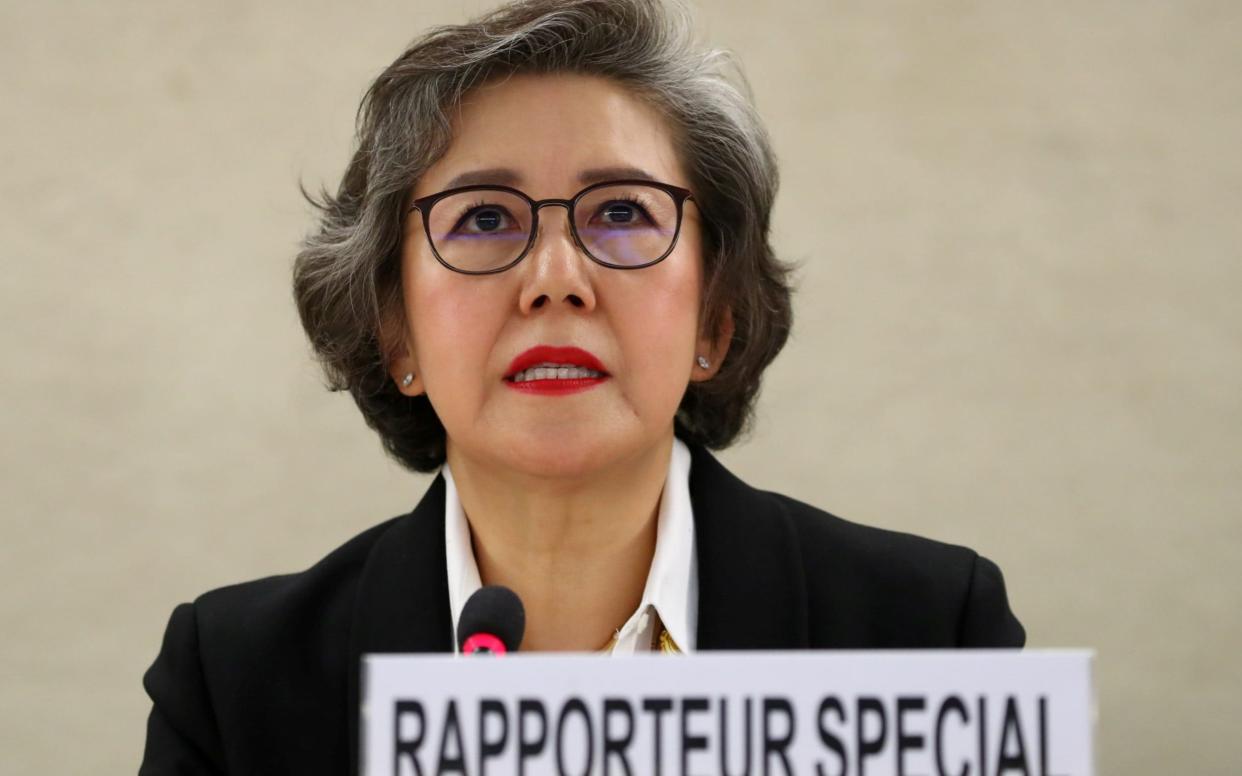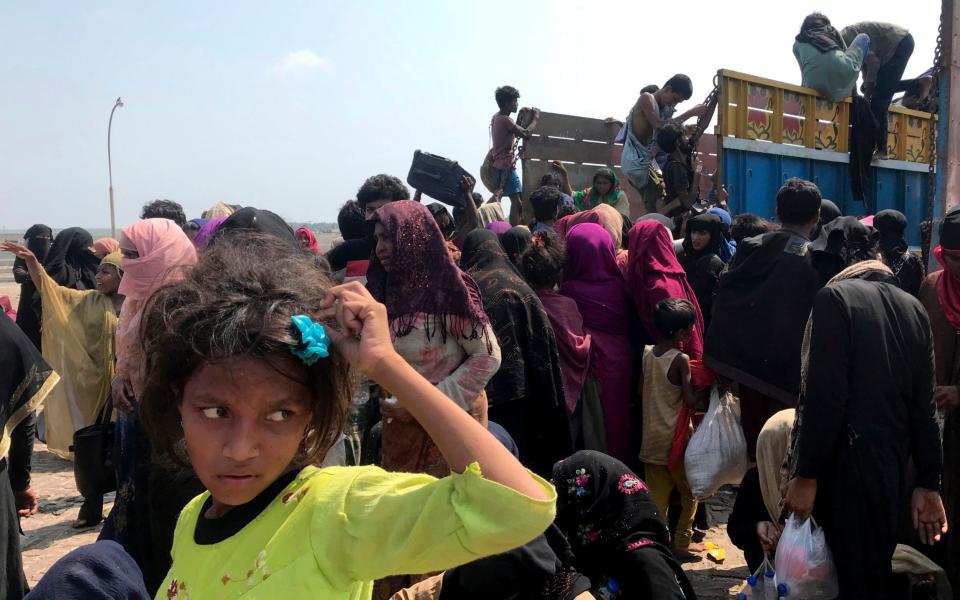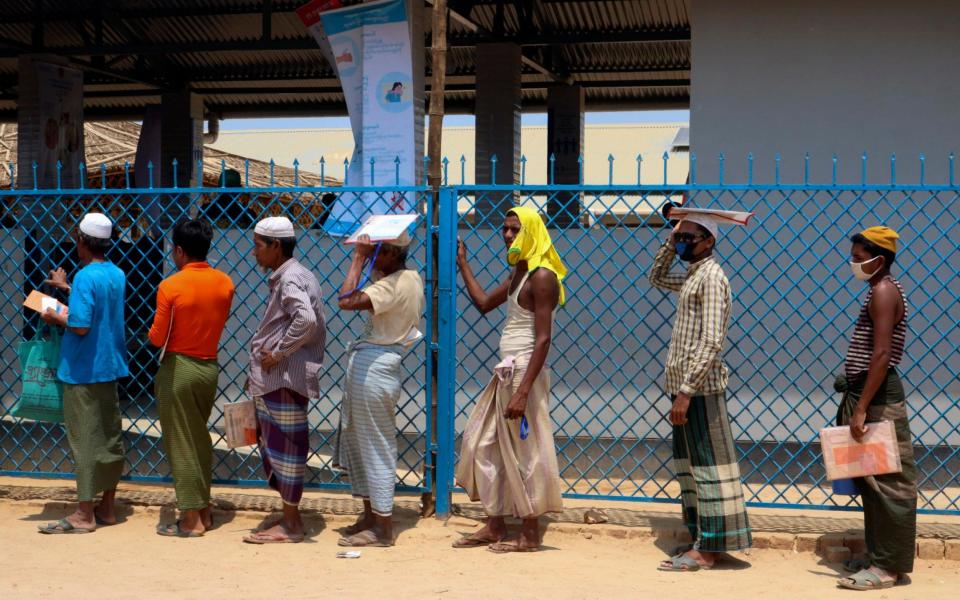Myanmar may be committing more war crimes, says UN human rights envoy

The United Nations human rights envoy for Myanmar left her six-year-long role on Thursday with a chilling warning that the country’s military was engaging in activities against rebels that may amount to “war crimes and crimes against humanity.”
Her evidence of the targeting of ethnic minorities in Myanmar’s Rakhine and Chin states comes less than three years after the world was horrified by the military’s ethnic cleansing of the Rohingya, triggering a mass exodus of refugees into neighbouring Bangladesh, where they now languish in squalid camps.
“While the world is occupied with the Covid-19 pandemic, the Myanmar military continues to escalate its assault in Rakhine State, targeting the civilian population,” said Yanghee Lee, who also serves as an advisor for the National Human Rights Commission of Korea.
Ms Lee said that she was “enraged” and “saddened” by the situation in the country as her mandate drew to a close. On Thursday she also expressed her frustration at the failure of the international community to step up and take action against atrocities committed in Myanmar.
“Disappointed at the lack of support and the will from the International Community for justice and accountability! Impunity will only help repeat 'Never again' situations!” she tweeted.
“I wonder the International Community will say when there is another horrific crisis. How many more times will it repeat: 'Never again'?”

In an earlier interview with Reuters, Ms Lee said that the democratic opening that brought Nobel laureate Aung San Suu Kyi to power in 2016, ending half a century of military rule, had failed to bring the hoped-for expansion of rights and freedoms.
In her role as a UN investigator, she has been repeatedly denied entry to Myanmar. Ms Lee has previously accused the army of genocide and other war crimes against the Rohingya Muslim minority in Rakhine in 2017 – charges which the military and civilian government have denied.
Her final report focused on intense recent clashes between government troops and the Arakan Army, an insurgent group seeking more autonomy for the country’s western region. The group recruits mainly from the region’s Buddhist majority.
More than 157,000 people have been displaced and hundreds, including women and children, killed and wounded during the armed conflict which has raged in Rakhine and Chin States since December 2018.
“Calls for a ceasefire, including by the Arakan Army, have gone unheeded. Instead, the Tatmadaw [armed forces] is inflicting immense suffering on the ethnic communities in Rakhine and Chin,” Ms Lee said in a statement.

“The Tatmadaw is systematically violating the most fundamental principles of international humanitarian law and human rights. Its conduct against the civilian population of Rakhine and Chin States may amount to war crimes and crimes against humanity.”
Facing “no accountability,” the army had “intentionally maximized” civilian suffering, she charged.
Recent air and artillery strikes on civilians have killed and injured scores of adults and children, and some of the injured have been prevented from accessing urgent medical care, according to the UN report.
“Most heinously, a severely injured teenage boy died at a military checkpoint in Rakhine after the Tatmadaw forced the vehicle transporting him to wait there on the way to hospital,” it said.
Men suspected of links to the Arakan Army have been detained for days and tortured. Aid has been denied and schools, houses and a Buddhist temple have been burned or destroyed, even an entire village of up to 700 homes.
“In one artillery attack on 13 April, the Tatmadaw killed eight civilians, including at least two children, when it targeted Kyauk Seik village, in Ponnagyun township, with artillery from its nearby Battalion 550 base,” Ms Lee said.
The Arakan Army has also been accused of conducting “its hostilities in a manner that has had negative impacts on civilians, including kidnapping local officials and parliamentarians.”
The army has denied targeting civilians and has declared the insurgent group it is fighting, the Arakan Army, a terrorist organisation.

